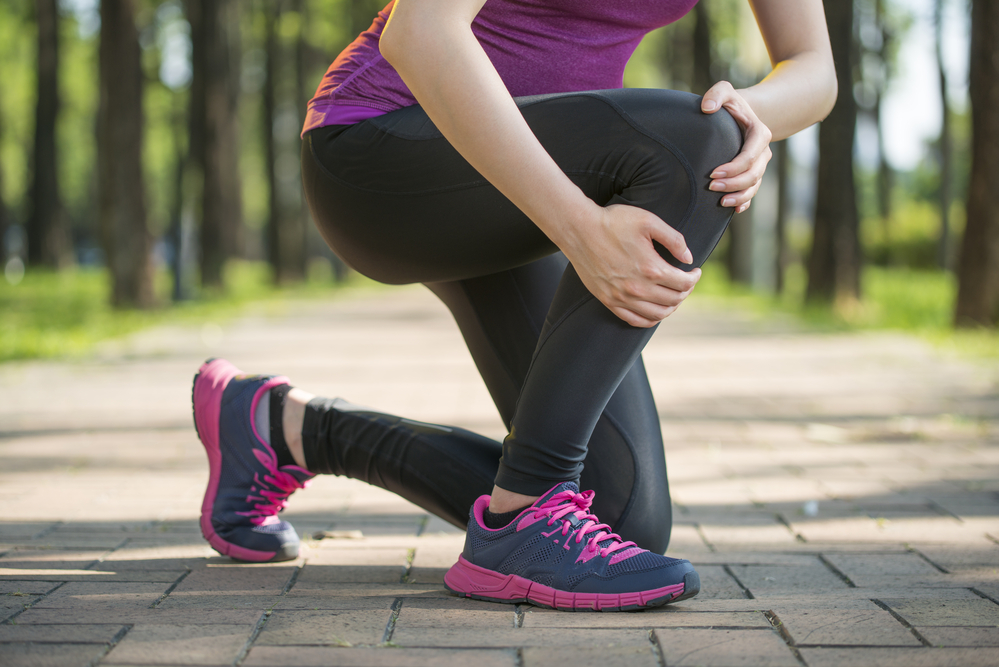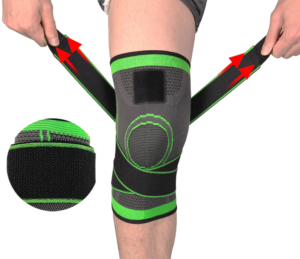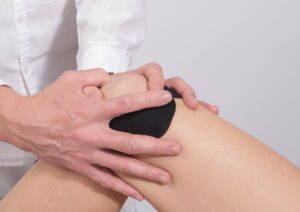
Imagine this: you’re an athlete who has recently experienced a knee injury. The pain is debilitating, and you’re eager to get back to your active lifestyle. That’s where knee sleeves come in. These simple, yet effective, tools are designed to provide support and compression to your injured knee, aiding in its recovery and rehabilitation process. In this article, we will explore the numerous benefits of using knee sleeves for knee injury recovery, and how they can help you regain your strength, mobility, and confidence.

The Importance of Recovery and Rehabilitation
Understanding the Recovery Process
When it comes to recovering from a knee injury, the journey can be challenging and require time and patience. Understanding the recovery process is crucial for a successful and efficient rehabilitation. The recovery process involves different stages, starting from the immediate post-injury period and continuing through rehabilitation exercises and therapies. During this process, the injured knee undergoes various changes, and it is essential to provide proper care and support to aid in the healing and recovery.
The Role of Rehabilitation in Knee Injury Recovery
Rehabilitation plays a vital role in knee injury recovery. It helps restore strength, flexibility, and function to the injured knee. Through a customized program designed by healthcare professionals, rehabilitation aims to address the specific needs of the individual and their injury. The goals of rehabilitation may include reducing pain and swelling, improving range of motion, enhancing stability and balance, and preventing further injuries. Rehabilitative exercises, therapies, and interventions are tailored to the individual’s injury, ensuring a comprehensive and effective recovery process.
Challenges in Knee Injury Recovery
Recovering from a knee injury can be a challenging process due to various factors. One of the primary challenges is pain management, as knee injuries often result in discomfort and inflammation. Additionally, the recovery process might be hindered by swelling, reduced mobility, and muscle weakness. Another challenge is maintaining motivation and adherence to the rehabilitation program, as it might involve significant time and effort. This is where the use of knee sleeves can play a crucial role in easing the recovery journey.
Introduction to Knee Sleeves
What Are Knee Sleeves?
Knee sleeves are supportive, elastic garments that are worn around the knee joint. They are designed to provide compression, stability, and support to the injured knee. Knee sleeves are made from a variety of materials, such as neoprene or elastic fabric, which allow for flexibility and breathability. They come in different sizes and can be slipped onto the knee easily.
How Knee Sleeves Aid in Recovery
Knee sleeves aid in the recovery process by providing several benefits to the injured knee. The compression provided by knee sleeves helps reduce swelling and inflammation, promoting faster healing. They also offer support to the soft tissues and ligaments around the knee, improving stability and alignment. Knee sleeves can also enhance blood circulation to the injured area, facilitating the delivery of oxygen and nutrients necessary for healing. By providing pain relief and protection, knee sleeves allow individuals to engage in physical activities and rehabilitation exercises with greater comfort and confidence.
Different Types of Knee Sleeves
There are different types of knee sleeves available, each offering unique features and benefits. Some knee sleeves are specifically designed for specific types of injuries, such as ligament tears or patella instability. Others may provide additional support through the use of adjustable straps or reinforced materials. It is essential to choose the type of knee sleeve that suits your individual needs and injury for optimal recovery.
Benefits of Using Knee Sleeves for Knee Injury Recovery
Pain Relief and Support
One of the primary benefits of using knee sleeves for knee injury recovery is their ability to provide pain relief and support. The compression offered by knee sleeves helps to alleviate discomfort by reducing inflammation and distributing pressure evenly across the joint. This support can contribute to reduced pain during daily activities, rehabilitation exercises, and sports participation.
Reduced Swelling and Inflammation
Knee injuries often result in swelling and inflammation, which can hinder the healing process. Knee sleeves help by applying gentle compression to the injured area, which helps reduce swelling and inflammation. By minimizing excess fluid buildup, knee sleeves promote faster healing and a more comfortable recovery experience.
Improved Blood Circulation
Proper blood circulation is vital for the healing process. Knee sleeves with compression properties enhance blood flow to the injured knee by applying consistent pressure on the area. Improved blood circulation allows for better oxygen and nutrient delivery to the damaged tissues, aiding in the healing process and promoting faster recovery.
Enhanced Stability and Joint Alignment
Knee sleeves provide stability and joint alignment, which can be particularly beneficial for individuals recovering from ligament injuries or instability. The compression and support offered by knee sleeves help promote proper alignment of the knee joint, reducing the risk of further injury or reinjury. This enhanced stability allows individuals to engage in physical activities and rehabilitation exercises with confidence and reduced risk of complications.
Protection from Further Injuries
During the recovery process, the injured knee needs protection to prevent further damage or reinjury. Knee sleeves act as a protective barrier, shielding the knee from external forces, impacts, and excessive movements. By providing this additional layer of protection, knee sleeves can minimize the risk of further injuries, allowing individuals to safely participate in activities without compromising their recovery.
Boosted Confidence and Psychological Aid
Sustaining a knee injury can have a significant impact on an individual’s confidence and psychological well-being. The use of knee sleeves can help boost confidence by providing support, stability, and pain relief. Knowing that their injured knee is protected and supported can help individuals regain trust in their knee’s abilities and gradually resume their daily activities and physical exercises. This psychological aid can greatly contribute to a positive recovery experience.
Choosing the Right Knee Sleeve
Understanding Your Injury and Needs
Choosing the right knee sleeve requires an understanding of your specific injury and its requirements. Different knee sleeves cater to various injuries, such as ligament tears, patella instability, or general knee pain. Consulting with a healthcare professional or rehabilitation specialist can help determine the most suitable type of knee sleeve for your individual needs.
Considering Size and Fit
Proper sizing and fit are crucial when selecting a knee sleeve. Ill-fitting knee sleeves may not provide adequate compression or support, compromising their effectiveness. It is important to measure your knee circumference and refer to the manufacturer’s sizing chart to ensure a proper fit. Knee sleeves should be snug but not excessively tight, allowing for freedom of movement while providing support and compression.
Evaluating Material and Compression Level
Different knee sleeves are made from various materials and offer different levels of compression. Neoprene knee sleeves are known for their durability, flexibility, and heat retention properties, while elastic fabric sleeves provide breathability and moisture-wicking capabilities. The compression level should be appropriate for your injury and comfort level. Higher levels of compression are often recommended for acute injuries, while lower levels are suitable for general support and prevention of injuries.
How to Properly Use Knee Sleeves
Consulting with a Healthcare Professional
Before incorporating knee sleeves into your recovery and rehabilitation program, it is essential to consult with a healthcare professional or rehabilitation specialist. They can provide guidance on the appropriate usage, duration, and frequency of wearing knee sleeves based on your specific injury. Consulting a professional ensures that knee sleeves are used correctly and in conjunction with other rehabilitation methods for optimal results.
Wearing Knee Sleeves During Physical Activities
Knee sleeves can be worn during physical activities to provide support, stability, and protection to the injured knee. Whether engaging in rehabilitation exercises, sports, or daily activities, knee sleeves can help minimize discomfort, reduce the risk of reinjury, and promote better performance. It is important to follow the recommendations provided by healthcare professionals regarding the appropriate use of knee sleeves during different activities.
Taking Care of Knee Sleeves
Proper maintenance and care of knee sleeves are important to ensure their durability and effectiveness. Regularly washing knee sleeves according to the manufacturer’s instructions helps maintain hygiene and prevent odor buildup. Additionally, allowing knee sleeves to air dry thoroughly after each use can help prolong their lifespan. Inspecting knee sleeves for any signs of wear and tear and replacing them when necessary is crucial to ensure continued support and effectiveness.

Combining Knee Sleeves with Other Rehabilitation Methods
Physical Therapy Exercises
Physical therapy exercises are an integral part of knee injury recovery. Combining knee sleeves with prescribed exercises can enhance the effectiveness of the rehabilitation program. Knee sleeves provide the necessary support, stability, and compression required during exercises, helping individuals perform them with greater ease and reducing the risk of injury.
Strength Training and Conditioning
Strength training and conditioning exercises can also be integrated into the rehabilitation program. Knee sleeves can offer support and stability during these exercises, allowing individuals to build strength, improve flexibility, and enhance overall knee function. The compression provided by knee sleeves can contribute to better muscle activation and proprioception, aiding in the development of strength and coordination.
Braces and Supports
In some cases, combining knee sleeves with other braces or supports may be beneficial for injury recovery. For more severe injuries or conditions, healthcare professionals may recommend the use of additional support, such as knee braces or patellar stabilizers. These additional supports, when used in conjunction with knee sleeves, can provide maximum stability, protection, and support to the injured knee during the recovery process.
Potential Risks and Precautions
Risk of Dependency
While knee sleeves can be beneficial during knee injury recovery, it is important to avoid becoming overly reliant on them. Relying solely on knee sleeves without addressing the underlying cause of the injury or engaging in proper rehabilitation exercises may lead to a dependency on external support. It is crucial to use knee sleeves as a tool to aid in recovery and rehabilitation, rather than as a long-term solution.
Skin Irritation and Allergies
Excessive or prolonged use of knee sleeves may cause skin irritation or allergic reactions, especially if you have sensitive skin. To minimize the risk, it is recommended to choose knee sleeves made from hypoallergenic materials or lined with moisture-wicking fabric. If any signs of skin irritation or allergies occur, it is advisable to discontinue use and consult with a healthcare professional.
Proper Monitoring and Regular Check-ups
During the recovery process, it is important to monitor the progress of the injury and seek regular check-ups with healthcare professionals. This allows for proper assessment of the recovery’s effectiveness and ensures appropriate adjustments to the rehabilitation program, including the usage of knee sleeves. Regular check-ups also provide an opportunity to address any concerns or complications that may arise during the recovery journey.
Real-Life Testimonials and Success Stories
Athletes and Sports Professionals
Athletes and sports professionals often encounter knee injuries throughout their careers. Many have successfully incorporated knee sleeves into their recovery and rehabilitation routines, attributing their positive experiences to the benefits provided by knee sleeves. Their testimonials highlight the importance of proper support, stability, and pain relief offered by knee sleeves in aiding recovery, allowing them to return to their respective sports with confidence.
Non-athletes and Active Individuals
Knee injuries can also impact individuals with active lifestyles who may not be professional athletes. Many non-athletes and active individuals have shared their success stories of using knee sleeves during their recovery journeys. These individuals emphasize how knee sleeves provided them with the necessary support, reduce pain, and regain their ability to participate in physical activities they enjoy. Their stories showcase the versatility of knee sleeves in assisting people from various walks of life in recovering from knee injuries.
Conclusion
Recovery and rehabilitation after a knee injury require a comprehensive and individualized approach. Knee sleeves serve as valuable tools in aiding the recovery process by providing support, stability, pain relief, and protection to the injured knee. Their benefits, including pain relief, reduced swelling, improved blood circulation, enhanced stability, and psychological aid, make them a valuable addition to the rehabilitation program. By choosing the right knee sleeve that suits your specific injury, properly using them, and combining them with other rehabilitation methods, you can optimize your knee injury recovery and return to your regular activities with confidence. Remember to consult with healthcare professionals, monitor your progress, and prioritize proper care and maintenance of your knee sleeves for a successful recovery journey.




